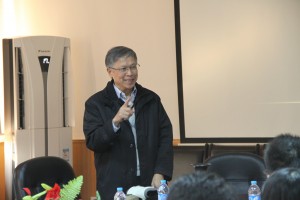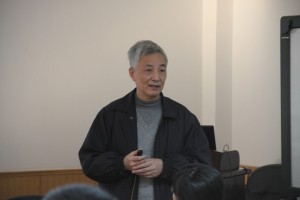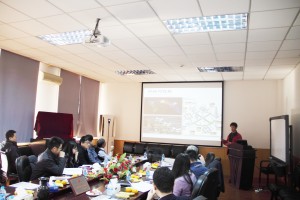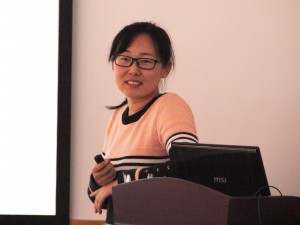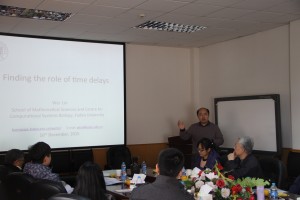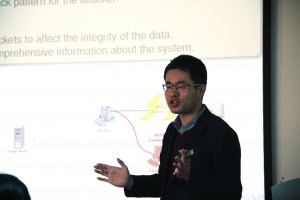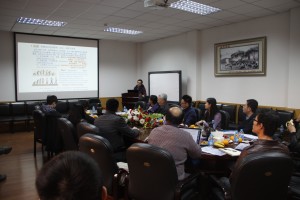The past two days have witnessed a heated discussion on “network control”, “network time characteristics”, “game theory”, “epidemics”, etc., during Workshop on Collective Control over Complex Networks 2015.
The workshop has been supported by Research Center of Smart Networks and Systems (RCSNS), School of Information Science and Engineering, Fudan University, China.
In the first day (Dec. 15th), Chair, the founding director of RCSNS, Prof. Li Xiang (李翔) welcomed invited speakers and attendees. And later, Prof. Chen Guanrong (陈关荣) from City University of Hong Kong gave a lecture on the right attitude towards research and shared some of his interesting experience.
In the next day (Dec. 16th) morning, Prof. Chen gave another lecture on some phenomena about structural controllability of scale-free networks.
The next lecture was given by Prof. Xi Yugeng (席裕庚) from Shanghai Jiao Tong University. In the lecture, he introduced node selection rules to achieve structural controllability as well as the improved algorithm.
After tea break, Dr. Li Cong (李聪), an associate professor of RCSNS, chaired the workshop. Mr. Hou Baoyu (侯宝玉), a PhD candidate tutored by Prof. Li, gave an introduction to his work on temporal network controllaibility as his dissertation opening report. And the committee approved his proposal.
Later, Dr. Wang Lin (王琳), an associate professor from Shanghai Jiao Tong University, gave a lecture on state controllability and observability of networked systems.
After lunch break, the workshop went on. Prof. Lin Wei (林伟) from Fudan University gave a lecture on detecting and analyzing time delay in complex systems.
In the next lecture, Dr. Shi Ling (施凌), an associate professor from the Hong Kong University of Science and Technology, introduced how to fight against DoS attack using game-theoretic approach.
During the tea break, we took a photo for all attendees (as the attachment in the end of this post).
After tea break, Mr. Wang Jianbo (王建波), a PhD candidate tutored by Prof. Li, gave an introduction to his work on epidemics of meta-population as his dissertation opening report. And the committee approved his proposal.
The two day might not be long time, but the workshop could be fruitful. Attendees, including experienced researchers and students, shared their most advanced findings and opinions on the frontier topics such as “control”, “time characteristics” and so on. Some discussions might spark further investigation.
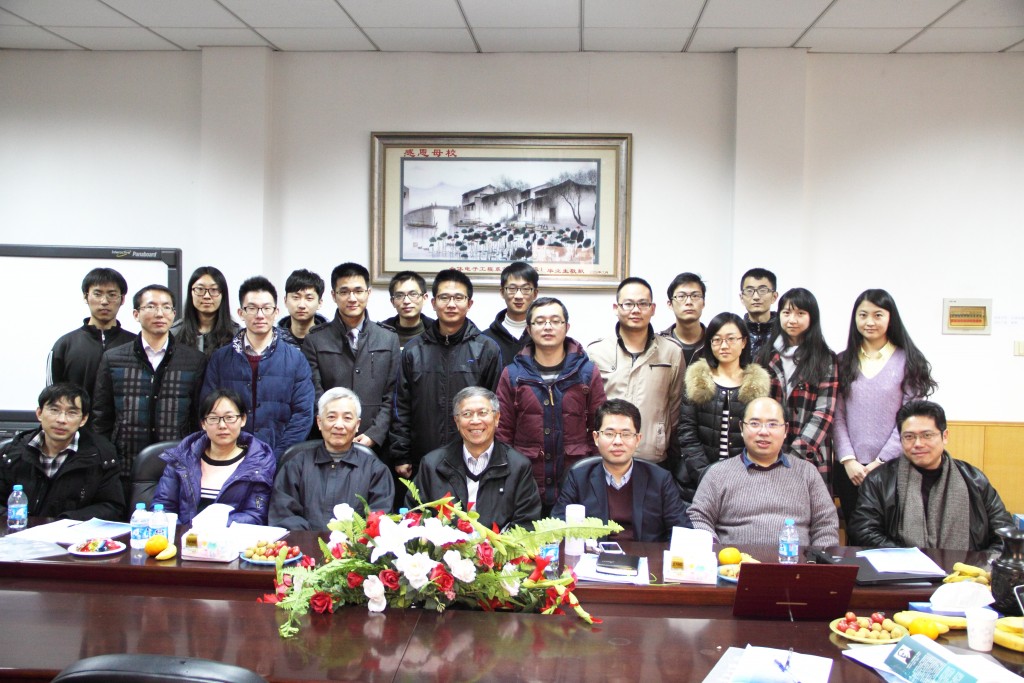 front row: (left) Shang H.L., Wang L., Xi Y.G., Chen G.R., Shi L., Lin W., Li X.
front row: (left) Shang H.L., Wang L., Xi Y.G., Chen G.R., Shi L., Lin W., Li X.
back row: (left) Hou B.Y, Tong D.B., Li X.J.,Shen C., Zhang S.M., Yuan Q., Yao P., Zhang Y.Q., Hu Y.J., Wang J.B., Rao P.C, Zhou M., Zhan J.Y., Wu B.C., Liang D., Li C.


